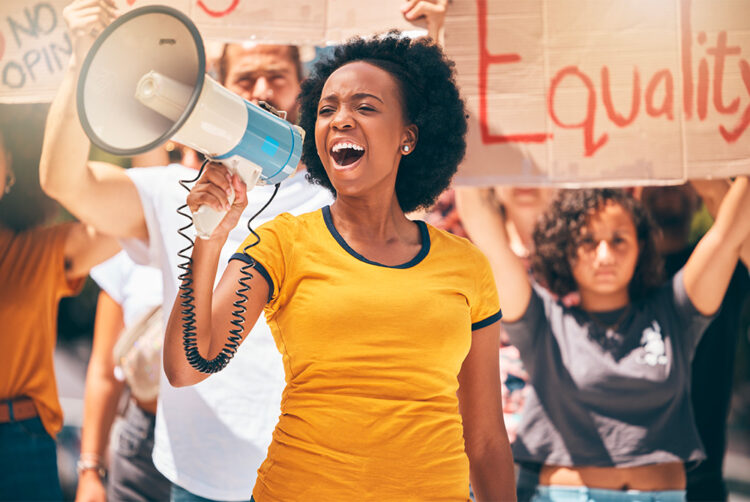How far have we really come on gender equality?

Opinion
There is still a long way to go to achieve true gender equality — especially when it comes to women’s health.
There is still a long way to go to achieve true gender equality. Especially when it comes to women’s health.
Sexism is still rife when it comes to the public discourse around women. Just look at how the BBC described the resignation of Jacinda Ardern as New Zealand Prime Minister — questioning if “women can have it all”.
In fact, whenever you see a female leader or high profile figure stepping down, the headlines and commentary focusing on their gender and how it has impacted their decision or career never seem far away. When Susan Wojcicki stepped down from YouTube, or Serena Williams retired from tennis, they were quickly tied into wider conversations about women leaving high-profile positions.
One week on from the 112th International Women’s Day, there is still a long way to go to achieve true gender equality. Especially when it comes to women’s health. Yes, there is more open discussion than in previous generations. Unfortunately, that discussion is often through a negative lens or lacks the nuance and insight that comes from better knowledge and education.
If society, and the workplace, is going to genuinely progress and champion its women for their successes then real change is needed. That means introducing policies and initiatives that help reframe the conversation around women’s health, support women in the workplace dealing with symptoms, and enable men to play their part.
Here are four steps agencies can take…
Implement a modern menopause policy
More women over the age of 45 are in the workplace than ever before. That means, at one point or another, a significant proportion of your workforce will navigate menopause and ageism stereotypes. With recent studies revealing over one million women are considering quitting their jobs due to a lack of menopause support, policies must empower women and factor in the entire journey.
At mSix&Partners, we have recently introduced a menopause policy where women can request adjustments at work and are afforded greater flexibility and adjustable working patterns when they experience symptoms. The policy also grants female employees coping with anxiety the use of a wellbeing room where they can undertake relaxation or mindfulness activities. At the end of the day, women should know their employee has their back if they experience symptoms, and managers should be educated on what support the company can offer.
Speed mentoring and reverse mentoring
Women of all generations need to show up and support each other, rather than fall into the trap of competing against one another. Mentoring is a great way to connect female colleagues of different ages and seniority levels to make sure questions you might have thought were taboo can be asked in a safe space, and we can learn from each other.
Where possible, agencies should extend those opportunities beyond their employees. For example, we also host gatherings with the Brixton Finishing School where attendees can learn from inspiring women in the industry and understand more about day-to-day agency life.
Keeping female health in focus
Female health is an ongoing journey and women should have the tools at their disposal to navigate their path. The key is maintaining regular conversation around the topic. Not only does this normalise symptoms in the workplace, but it educates people (of both genders) on what support to offer or to seek.
This could be in the form of regular talks and workshops from experts in the field or, as we do at mSix&Partners a subscription to an app or service centred around female health. We offer our employees access to ‘Clue’ to help navigate anything from periods to fertility, through to menopause. And a partnership with Modibodi provides all women in the agency free sustainability sanitary wear.
Access all areas
Creating an open and trusting dialogue — encompassing everyone from those experiencing female health-related issues, to those seeking advice — comes down to senior women in the agency speaking openly and honestly.
This doesn’t mean everyone should be forced to open up on every aspect of their life. But being open to offering guidance and advice, or at least pointing people in the right direction, can be enough to make sure women across the agency don’t feel isolated or unsure about what the next step may be. Thankfully, this type of leadership is increasingly the standard when it comes to mental health. It should be the same for women’s health.
***
For gender equality to become a reality rather than a pipe dream, the needs of the modern workforce need to be accounted for. By doing that, we can help women of all ages and demographics thrive — and lay the foundations for the next Jacinda Arderns of the world to make their mark.
Victoria Bickle is UK managing director at mSix&Partners




